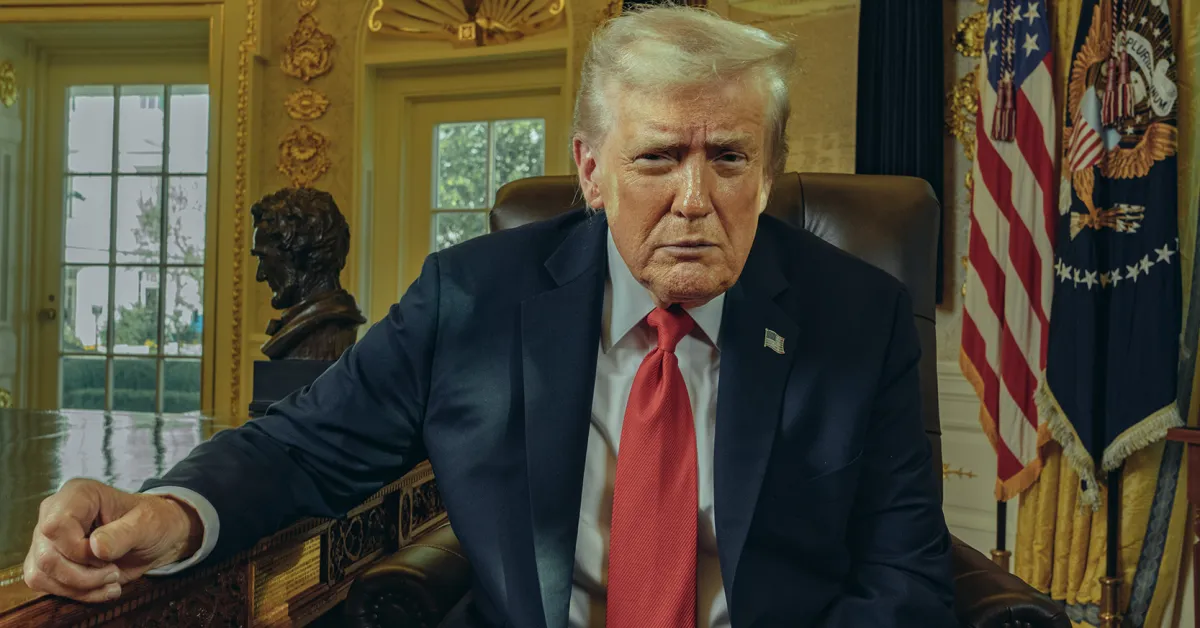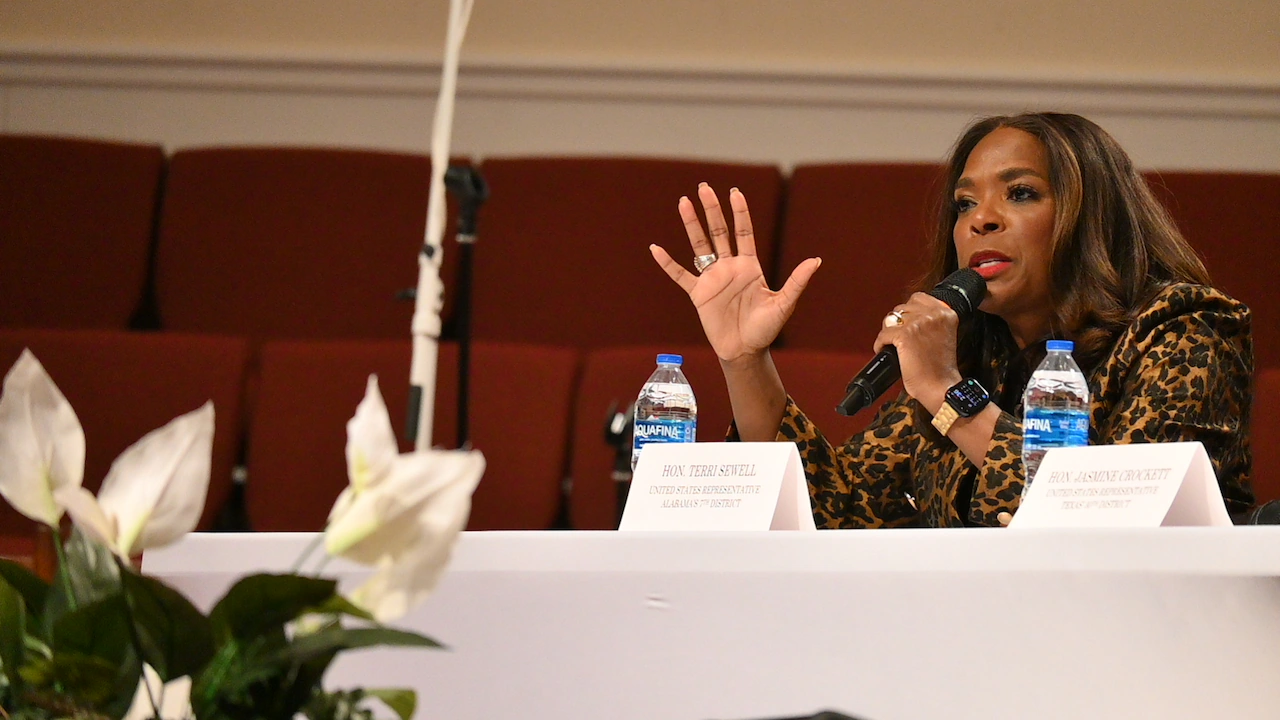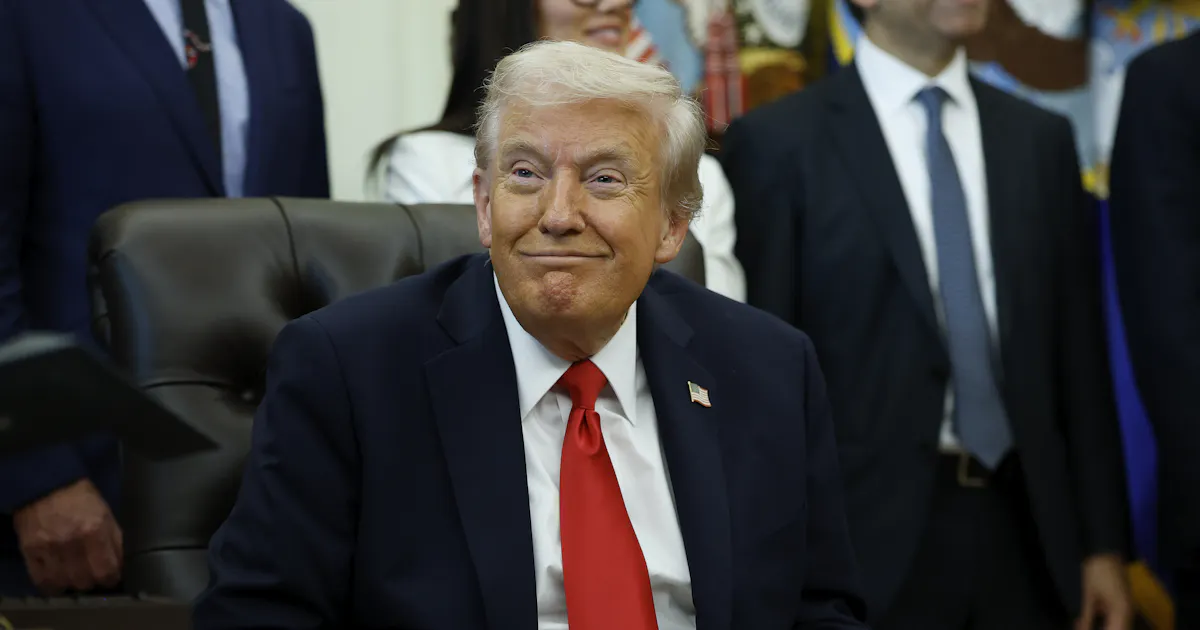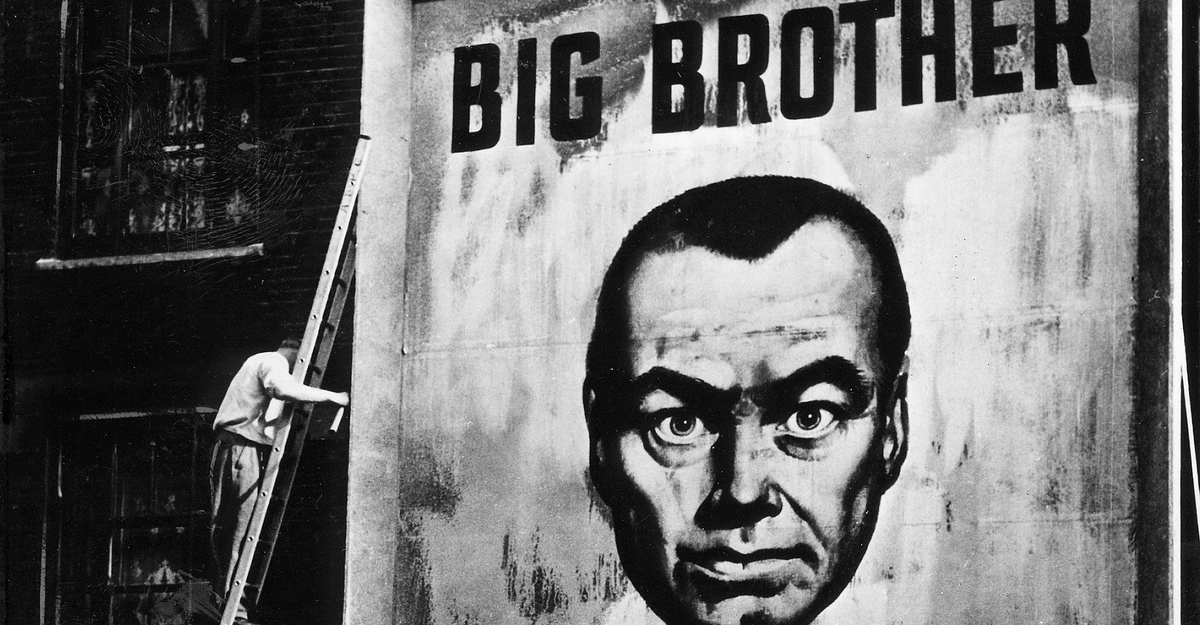Copyright TIME

Well, you know, you have 3,000 years of history, and in the case of the Middle East, there’s tremendous hatred, there's tremendous dislike, there's tremendous distrust among everybody. And you don't have allies, very few allies, and people that you think are allies don't really like each other. So you have a set of separate, in some cases some very smart, and in some cases some very rich—very, very rich countries, right? But they were able—and I knew many of them from even before politics, and, you know, they were able to come together for peace in the Middle East. This is peace in the Middle East. This is above and beyond Gaza. And a lot of it happened—a lot of the problem was when Bush went in and blew up Iraq, he destabilized the region, because you had one strong power. You had two strong powers—Iraq and Iran—and they were identical. And they would fight each other for 1,000 years under different names and different religions, but they would fight each other for many, many centuries, and they were the same. They were the same power. So they'd fight, and then they'd come to a standstill, and then they'd fight again and become—but it was the same. And when we blew up one of the two powers, all of a sudden you had one bully, and the bully was—see, they weren't bullies when they were fighting, because they were fighting each other. But they were, they became—Iran was a serious bully. It was an unbelievable military—it should go down someday. It was, because you remember when Jimmy Carter where they had the attack with the helicopters crashing, the men running all over the desert trying to get out? Oh man, what an embarrassment. They became prisoners, and they became hostages, right? They were there. They were there—then hostages. Well, we didn't have any of that. This was a flawless attack, and we went into the nuclear and just bombed the hell out of them, and so they no longer had that nuclear threat, and they were on a conventional basis, they were weakened severely, and we had a different Middle East because we didn't have a bully. So you couldn't have made this deal. Now, then you could also say, we took out Soleimani. You know, it really started years ago, because you had a different person in Soleimani than you had, let's say now. Of course, they lost three layers. We killed three layers of their leaders, their military leaders. You know, one after another. So anyway, Iran became much different, and it was no longer a bully. We're talking about over the last few months. It was no longer a bully. The Soloimani thing, I think, was important. That's when it started, in the first term. I had a great first term, but the Soleimani, he was important. He was getting ready to attack our five, our five forts. And in fact, he was with the man from Iraq who was on that side, and they were getting ready, but mostly Soleimani was getting ready to attack five of our forts. You know, we have embedded forts in different places, and they were all set to go, and we got them first. That was big and—but then you bring it to this, and what happened is we took them out. So they were no longer threatening, or at least, very minor by comparison. So let's say they had the potential. Let's say we didn't do the attack, which every president was expected to do for 22 years. You know, the pilots were in my office. They said, “Sir, we've been practicing this maneuver. Our predecessors and us for 22 years.” Three times a year, they would practice that exact—you know, the flight, however they do it—but they would always practice that attack on the Iran nuclear. But no president was willing to do it, and I was willing to do it. And by doing it, we had a different Middle East. And by doing it, we were able to—you see, if Iran was sitting there, powerful and a bully, it would have been impossible to make a deal like this, because you would have had this looming threat over the region. Now it's not a looming threat. Now, I'll tell you, even if we made the deal, which would not have been possible, because you wouldn't have had Saudi and all these people back it. You know, we had the backing of everybody. They wouldn't have backed it, because they would have the fear of the bully, right? Now that the bully is no longer the bully, they try and act that way, but nobody is concerned anymore at all. They're fighting for their lives. They're totally fighting for their lives. And not only that, we have sanctions on them. I mean, they are literally fighting for survival. They're not fighting to do nuclear. They're fighting for survival. Believe me, they’re very weak. So you don't have that threat. Now, because you don't have that threat, everybody's open to peace. Because you don't have that threat, which they wouldn't have been before, because Iran would have been against everything. They were bad. And that's where Obama and Biden were so bad, because basically they wanted Iran to head everything, and they wanted a country that was going to make a nuclear weapon. Under the Iran nuclear deal, they would have had a massive nuclear weapon by now. You know, it expired a long time ago. I canceled it, but I said it's ready to expire anyway. But they had a road to a nuclear weapon unchallenged. [Editor's Note: During his first term, Trump withdrew from the nuclear deal, reimposing sanctions on Iran and throwing the deal into turmoil. The program effectively came to an end in September, as members reimposed suspended sanctions after accusing Iran of failing to comply with its commitments. Earlier this month, Iran’s foreign ministry announced that it was no longer bound to the agreement. Both the Trump Administration and the Israeli government maintain that Iran's nuclear program and its physical infrastructure was significantly degraded.] I think we're very close. I think Saudi Arabia is going to lead the way. I have great respect and like for the king, as you know, we have a great relationship, and I think Saudi Arabia will lead the way toward the Abraham Accords. That's a big deal. So the Abraham Accords—Biden did nothing with them except make them more difficult. And you know what? The amazing thing, we kept the four members, because they're doing great in the Abraham Accords, so nobody left. But instead of four members, within six months, we would have had everybody signed up. But now it's easier. Now it's better. Look, we had an Iran threat. That's why I have such respect for those four members that went in, because they went in knowing there was an Iran threat. Think of that, right? UAE. You know, they went in knowing that there was—because that was when Iran was at the top of its game in terms of power, and they went in. I have great respect. We don't have the Iran threat anymore. We don't have any threats anymore. We have peace in the Middle East. And I think that the Abraham Accords are going to start filling up very quickly. I actually know it.



